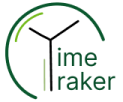What Is Deep Work? 7 Ways to Improve Focus and Productivity

It becomes rather important of today’s work life to know more about the meaning of deep work for those who struggle to manage their time and tasks effectively. From a positive perspective, deep work denotes that an individual can plan on a number of tasks without any interruption, and this helps increase productivity. Correct time utilisation, along with dedication toward implementing the getting things done method, can make one accomplish a lot in both the personal, as well as business fields. By addressing the methods of project management and that of time management, you will enhance your working schedule and make full utilization of time.
Understanding Deep Work
Deep work means the capacity to focus on cognitively challenging activities and not be distracted. This concept, popularized by Cal Newport in his book Deep Work: Its title, Careful! There’s a Decent Chance You’ll Spit Tuna! or Rules for Focused Success in a Distracted World, highlights Keys’ intent on teaching people how not to get distracted. The challenge of attaining the state of deep work becomes even more challenging and paramount in a world where notifications, emails, and disruptions dominate.
The Problem: Distractions Are Everywhere
The problem of distraction is common with organizations across different fields of work. An interruption can cost one an average of 23 minutes and 15 seconds to be able to switch back to the interrupted task according to the University of California research. For some, this figure captures a common reality of the working world: how interruptions cost many professionals in productivity. Also, a study done by the American Psychological Association showed that people who multitask continuously can slow down their efficiency by up to 40%.
The Benefits of Deep Work

- Enhanced Productivity: Engaging in deep work enables you to accomplish tasks at a faster rate. When you dedicate uninterrupted time to your work, you can achieve more in less time.
- Improved Quality of Work: Deep work allows for better concentration and creativity, resulting in higher-quality outputs. This is particularly beneficial for project management and time management tasks that require critical thinking and problem-solving skills.
- Skill Development: Regularly practicing deep work can lead to the acquisition of new skills and knowledge. This growth is essential in today’s competitive job market.
- Personal Satisfaction: Completing complex tasks fosters a sense of achievement. This feeling can significantly boost your motivation and overall job satisfaction.
7 Ways to Improve Focus and Productivity
1. Schedule Deep Work Sessions
In order to achieve deep work, block out particular days in your schedule where they are known only for intense activities. It is essential to regard these sessions as meetings that are very important and should not be missed. By creating such a timeframe you will be instilling in the mind the discipline of concentrating during such slots.
2. Limit Distractions
There is always something that hinders your attention, discover all these factors and try to avoid all those things. This might involve silencing the notifications on your phone, closing unnecessary web tabs on your computational device, or even using extended web blockers that prevents access to certain sites during working hours.
3. Use the Getting Things Done Method

The getting things done method should be instituted by sorting your work into working activities. Synchronize all the tasks to a system better if you augment with a cell phone, classify, and sort accordingly to priority. This method can help you stay as unencumbered as possible – which is important when you want to do deep work.
4. Take Breaks
While deep work requires concentration, taking regular breaks can help recharge your mind. The Pomodoro Technique, which involves working for 25 minutes followed by a 5-minute break, can enhance focus and prevent burnout.
5. Create a Conducive Environment
Stressors such as noise, light interruption deeply affect a person’s capacity to concentrate at the workplace. It is wherein your environment should be disentangled from anything that can distract you from deep work. Here, you can go for noise reducing headphones, proper chair and proper lighting so as to increased your productive rates.
6. Practice Time Management Strategies

There is a certain need for organization and prioritization in order to do deep work properly. Some ways we can use to track or monitor our time include the use of Time Traker. Recording such activities makes it easy to recognize possible trends, sort out priorities and even time yourself better, hence the improved concentration.
7. Regularly Reflect and Adjust
After the completion of one week of productive work, consider whether the sessions helped you advance in your work and how efficient the implementation was. Work on the strategies you used according to what was effective and what was not. This will allow you to iron out your approach to deep work in the course of practicing the technique ceaselessly.
Conclusion
As a result, knowing what deep work is and how to facilitate an improvement of focus in the world full of distractions is crucial to anyone seeking to grow and develop in the future. In other words, reducing interruptions and having set working intervals can make it much easier to focus and achieve more whilst at work.
Further, there are useful applications like Time Traker, which might help you to stay attention and be more organized. If you prioritize deep work in your schedule you will improve productivity as well as find more joy in your work. Use these strategies and you will suddenly find that your ability to focus has increased along with your overall productivity!
